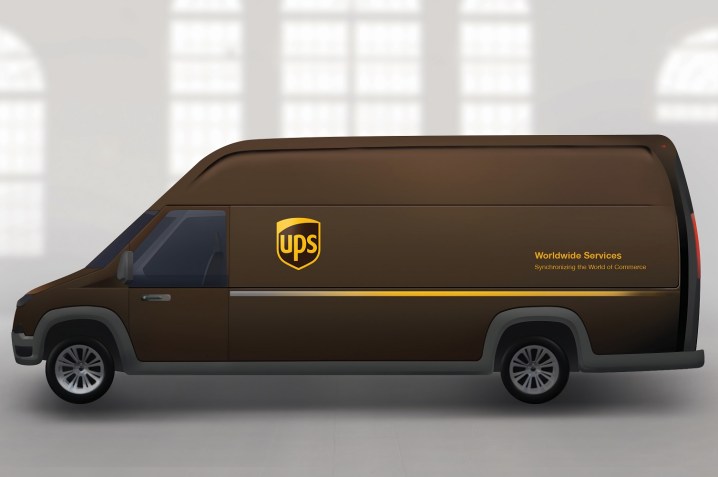
In a few short years, you might not hear the low rumble of a UPS truck as it approaches your driveway to drop off a parcel. The American delivery company has joined forces with a startup named Workhorse to design, build, and test a delivery van powered exclusively by electricity.
“With our scale and real-world duty cycles, these new electric trucks will be quantum leap forward for the purpose-built UPS delivery fleet. The all-electric trucks will deliver by day and re-charge overnight,” explained Carlton Rose, the president of UPS’s global fleet maintenance and engineering department. He added the van will offer about 100 miles of range in real-world driving conditions. That doesn’t sound like much, not when companies like Tesla and Porsche promise long-range models that can drive over 300 miles, but it’s more than enough for a vehicle that spends a majority of its time in urban areas.
UPS expects switching to battery power will come with numerous advantages. The truck (which looks Sprinter-sized) is expected to provide 400 percent better fuel economy than the diesel-powered model it will replace, so the company will save a considerable amount of money on fuel. An electric motor requires less maintenance than an internal combustion engine, too. UPS will never again have to buy routine maintenance items like glow plugs and oil filters.
Workhorse and UPS will start by launching a pilot program made of 50 trucks. We don’t know what they’ll look yet but don’t expect a design breakthrough; this is a UPS truck, not an Italian sports sedan. Drivers will test them in real-world conditions on urban routes scattered across the country in cities like Dallas, Atlanta, and Los Angeles. The feedback gathered during the program will help engineers improve the technology.
The two partners will begin ramping up production next year. Neither of them wants to speak about volume yet, but UPS points out it currently operates approximately 35,000 gasoline- or diesel-powered vans comparable in size to the electric model it’s developing. Executives hope to make battery-powered models the standard selection when appropriate.
Electric cars get a lot of attention these days, but the electric van segment is becoming equally crowded. Volkswagen announced plans to introduce a battery-powered delivery van inspired by the I.D. Buzz concept in the coming years, and Mercedes-Benz developed the latest Sprinter with electrification in mind. Don’t be surprised to see other major van manufacturers (like Ford and Ram) leap into the segment in the coming years.



